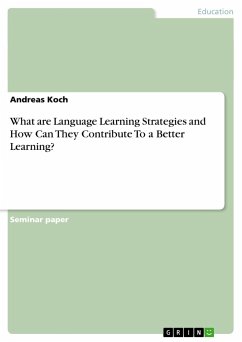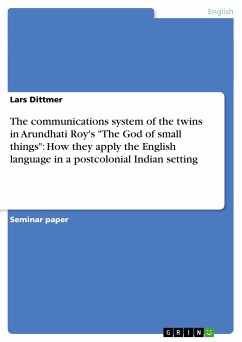Seminar paper from the year 2005 in the subject Didactics - English - Pedagogy, Literature Studies, grade: 1,0, Martin Luther University (Anglistik), course: Anglistik und ihre Didaktik/Sprachlehr- und -lernforschung: An Introduction, language: English, abstract: Language Learning StrategiesForeign languages are so often spoken and learned that for many people they can be seen as a part of everyday life. How, however, it should be learned, acquired and taught is widely discussed. This paper orientates on one aspect of language learning and teaching processes:What are language learning strategies and how can they contribute to a better learning?First the term "strategy" is explained etymologically and from a general point of view.In a second part the author gives a hypothesis of what he understands by it. Following important terms as operations, processes and strategies, and their relationship to each other are explained. A short discussion will consider whether learning strategies are to be placed into the neurophysiological or into the psychical system. Further, important features of strategies in language learning are analyzed. After considering different dimensions of strategies, Oxford's model of learning strategies is presented. The question of consciousness respectively subconsciousness or unconsciousness is raised and problem-orientation as a basic feature of strategies is explored. The paper further suggests a discussion about strategies' efficiency on an individual level.Third, the author presents notions of how strategies can be taught / included in the teaching process. Different kinds of instruction methods will be offered and critically discussed. These include separate vs. integrated instruction and direct vs. embedded instruction. After pointing out empiric results concerning the success of strategy teaching, two practical proposals of strategy instruction will be given - one for a cognitive and the other one for an affective strategy.
Hinweis: Dieser Artikel kann nur an eine deutsche Lieferadresse ausgeliefert werden.
Hinweis: Dieser Artikel kann nur an eine deutsche Lieferadresse ausgeliefert werden.








